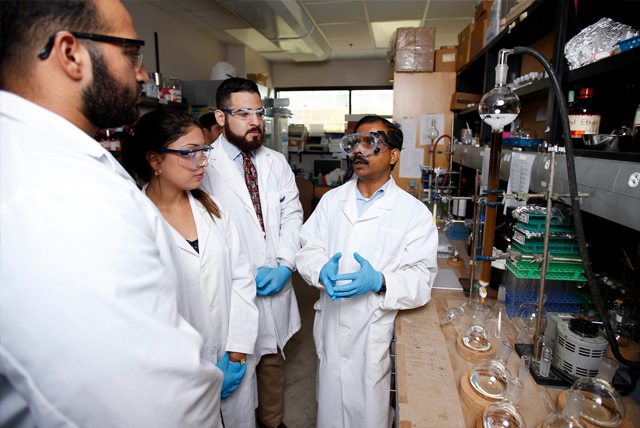Document Type
Article
Publication Date
1-19-2022
Abstract
The self-powered and autonomous sensors are incredibly important in advanced engineering, especially defence science. The increasing necessity of simple and smart electronics requires to be sustainably flexible, wearable, and waterproof. Triboelectricity has been a widely used mechanism for motion sensing nowadays. Almost all devices based on triboelectricity require contact between two surfaces. Herein, a touchless triboelectric motion sensor for human motion sensing and movement monitoring is developed. The device was primarily fabricated using simple latex (cis-1,4-polyisoprene) structures and copper (electrode materials), which make it a very cost-effective device for sensory applications. The device is tested with specimens of different areas and heights in motion. The maximum output of the device is noted as 12 V at a specimen height of 5 cm. Further different types of human motions are applied in front of the device to ensure low energy sensitivity using triboelectric phenomena. The lightweight smart device precisely provides significant output signals for each movement of the human body which makes the device a prospective medium for motion sensing and movement monitoring which can be applied in the fields of security, energy, and medicine.
Recommended Citation
Zamora, Damian, Abu Musa Abdullah, Alejandro Flores, Haimanti Majumder, Muhtasim Ul Karim Sadaf, Bahareh Azimi, Serena Danti, and M. Jasim Uddin. "Flexible Bielectrode‐Based Highly Sensitive Triboelectric Motion Sensor: A Sustainable and Smart Electronic Material." Energy Technology 10, no. 4 (2022): 2100662. https://doi.org/10.1002/ente.202100662
Publication Title
Energy Technology
DOI
10.1002/ente.202100662



Comments
This is the peer reviewed version of the following article:
Zamora, D., Abdullah, A.M., Flores, A., Majumder, H., Sadaf, M.U.K., Azimi, B., Danti, S. and Uddin, M.J. (2022), Flexible Bielectrode-Based Highly Sensitive Triboelectric Motion Sensor: A Sustainable and Smart Electronic Material. Energy Technol., 10: 2100662. https://doi.org/10.1002/ente.202100662
which has been published in final form at https://doi.org/10.1002/ente.202100662 This article may be used for non-commercial purposes in accordance with Wiley Terms and Conditions for Use of Self-Archived Versions. This article may not be enhanced, enriched or otherwise transformed into a derivative work, without express permission from Wiley or by statutory rights under applicable legislation. Copyright notices must not be removed, obscured or modified. The article must be linked to Wiley’s version of record on Wiley Online Library and any embedding, framing or otherwise making available the article or pages thereof by third parties from platforms, services and websites other than Wiley Online Library must be prohibited.